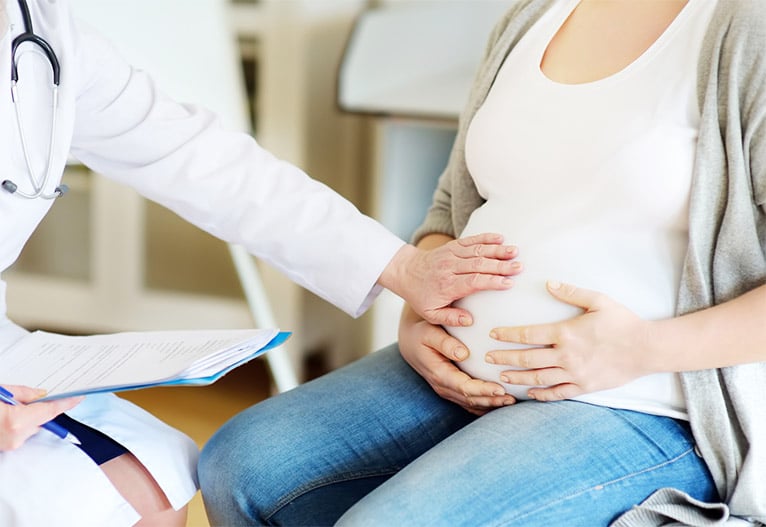No woman should suffer unnecessarily from pain during pregnancy. Persistent, unmanaged pain impacts your physical and psychological wellbeing and has an adverse effect on your pregnancy. But can you take Panadol and other painkillers when pregnant?
During pregnancy, your body will go through many changes. These changes may be due to hormones, the growth of your baby and the expansion of your uterus. Mild aches and pains are normal and are often due to the loosening and stretching of your ligaments and the strain of the pregnancy on your back, legs, and posture. And headaches can also be common for some women.
But sometimes pain and discomfort may also be due to non-pregnancy issues such as injury, infection, fever, or other medical conditions.
NPS Medicinewise reports that over 50% of Australian women use painkillers during their pregnancy. However, some painkillers aren’t safe to take when you’re pregnant, even if you can buy them over the counter.
So is Panadol safe to take while pregnant? And what about other types of painkillers? Let’s take a closer look.
Painkillers during pregnancy: What’s safe and what’s not

Paracetamol
NPS Medicinewise also states that Panadol (Paracetamol) is the most widely used painkiller in Australia, particularly by pregnant women.
Studies have shown that in prescribed doses, paracetamol does not seem to harm your baby or cause risk to your pregnancy. In fact, paracetamol is considered to be the safest painkiller to use through all trimesters and is also considered to be safe for use during breastfeeding. However, it is recommended that you only take paracetamol for the shortest possible amount of time and in the lowest effective dose.
For adults, the usual recommended dose is 1000 mg every four to six hours, with a maximum of 4000 mg in any 24-hour period. You should always read the product label directions.
Aspirin
Unless you’ve been advised by a healthcare professional to take aspirin, it’s should be avoided during pregnancy. Aspirin is also generally not recommended when you are breastfeeding, either.
Non-steroidal anti-inflammatories (NSAIDs)
NSAIDs include painkillers such as ibuprofen, naproxen, indomethacin, and diclofenac. Some studies have found that taking NSAIDs during the first trimester of pregnancy may increase the risk of miscarriage, or certain heart and gastrointestinal birth defects in your baby. They are also not recommended in the last trimester of pregnancy. This is due to the risk of causing early closure of important blood vessels in your baby’s heart.
However, NSAIDs (such as ibuprofen and diclofenac) are generally considered safe when you are breastfeeding.
Opioids
As strong painkillers, opioids treat moderate to severe pain and they include painkillers such as codeine, oxycodone, hydromorphone, hydrocodone, morphine, pethidine, and tramadol.
Opioids have not been shown to cause birth defects or risks to your pregnancy. However, you can become dependent on them which can lead to withdrawal for your baby after they are born.
Before taking Panadol or other painkillers when pregnant …

If you are pregnant or thinking of getting pregnant, talk to your healthcare professional before starting or stopping any medication. Be sure to discuss the following:
- All medication you take, including prescriptions, over-the-counter medicines, vitamins, and herbal and dietary supplements
- The best ways to manage any health conditions you currently have
- Your personal goals and preferences for your and your baby’s health

Leanne Vidler has been a Registered Nurse for 35 years, with her experience ranging from acute care in paediatric and paediatric intensive care (in Australia, Saudi Arabia, and the UK); infection prevention and control; education; immunisation; aged care; quality assurance; research; policy; and national guideline development. She now provides support and education to parents and families, helping them navigate and enjoy the crazy and precious early years of parenthood, as The Mama Coach.
We’ve also delved into the very important topic of whether you can eat chocolate while breastfeeding – make sure you check it out!




















2:47 pm
12:49 pm
10:46 am
6:13 am
6:15 am
9:38 pm
12:16 pm
12:14 am
6:53 pm
12:30 pm
10:35 am
9:39 am
8:55 am
7:48 am
6:29 am
8:56 pm
6:37 pm
10:49 am
7:28 am
6:35 am
- 1
- 2
- »
Post a commentTo post a review/comment please join us or login so we can allocate your points.